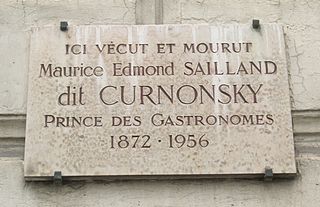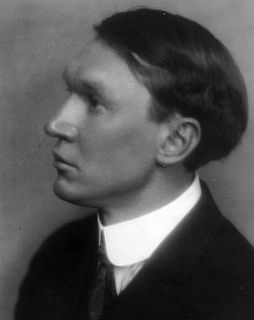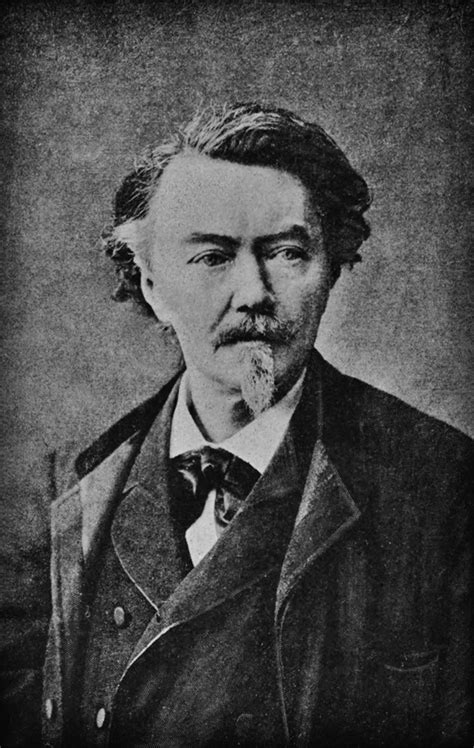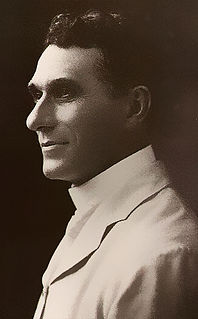A Quote by James Russell Lowell
The realm of death seems an enemy's country to most men, on whose shores they are loathly driven by stress of weather; to the wise man it is the desired port where he moors his bark gladly, as in some quiet haven of the Fortunate Isles; it is the golden west into which his sun sinks, and, sinking, casts back a glory upon the leaden cloud-tack which had darkly besieged his day.
Related Quotes
Bouillabaisse, this golden soup, this incomparable golden soup which embodies and concentrates all the aromas of our shores and which permeates, like an ecstasy, the stomachs of astonished gastronomes. Bouillabaisse is one of those classic dishes whose glory has encircled the world, and the miracle consists of this: there are as many bouillabaisses as there are good chefs or cordon bleus. Each brings to his own version his special touch.
We have seen that the Son of God created the world for this very end, to communicate Himself in an image of His own excellency. ... When we behold the light and brightness of the sun, the golden edges of an evening cloud, or the beauteous (rain)bow, we behold the adumbrations of His glory and goodness; and in the blue sky, of his mildness and gentleness.
The sun is a huntress young,
The sun is a red, red joy,
The sun is an Indian girl,
Of the tribe of the Illinois.
The sun is a smouldering fire,
That creeps through the high gray plain,
And leaves not a bush of cloud
To blossom with flowers of rain.
The sun is a wounded deer,
That treads pale grass in the skies,
Shaking his golden horns,
Flashing his baleful eyes.
The sun is an eagle old,
There in the windless west.
Atop of the spirit-cliffs
He builds him a crimson nest.
There is no man ... however wise, who has not at some period of his youth said things, or lived a life, the memory of which is so unpleasant to him that he would gladly expunge it. And yet he ought not entirely to regret it, because he cannot be certain that he has indeed become a wise man -- so far as it is possible for any of us to be wise -- unless he has passed through all the fatuous or unwholesome incarnations by which that ultimate stage must be preceded.
Man with all his noble qualities, with sympathy which feels for the most debased, with benevolence which extends not only to other men but to the humblest living creature, with his god-like intellect which has penetrated into the movements and constitution of the solar system- with all these exalted powers- Man still bears in his bodily frame the indelible stamp of his lowly origin.
How much reverence has a noble man for his enemies!--and such reverence is a bridge to love.--For he desires his enemy for himself, as his mark of distinction; he can endure no other enemy than one in whom there is nothing to despise and very much to honor! In contrast to this, picture "the enemy" as the man of ressentiment conceives him--and here precisely is his deed, his creation: he has conceived "the evil enemy," "the Evil One," and this in fact is his basic concept, from which he then evolves, as an afterthought and pendant, a "good one"--himself!
The thing that was forfeited in the garden was regained. God gave him [Adam] dominion over the works of His hand. God made him His understudy, His king to rule over everything that had life. Man was master, man lived in the realm of god. He lived on terms of equality with God. God was a faith God. All God had to do was to believe that the sun was, and the sun was. All God had to do was to believe that the planets would be, and they were. Man belonged to God's class of being - a faith man, And he lived in the creative realm of God
Each leaf that brushed his face deepened his sadness and dread. Each leaf he passed he'd never pass again. They rode over his face like veils, already some yellow, their veins like slender bones where the sun shone through them. He had resolved himself to ride on for he could not turn back and the world that day was as lovely as any day that ever was and he was riding to his death.





































